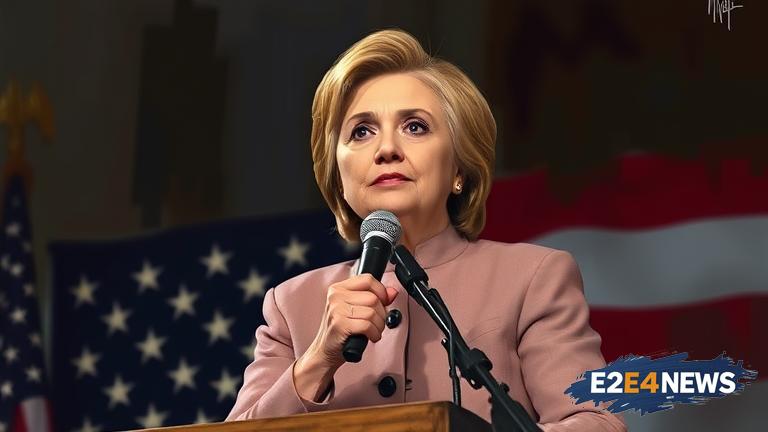In a surprising turn of events, a decades-old statement from Hillary Clinton has come back to haunt her, as her past comments on the flag burning ban have resurfaced amidst President Trump’s recent order. The controversy surrounding the flag burning ban has been a longstanding issue in American politics, with many arguing that it is a form of free speech, while others see it as a desecration of the national symbol. Hillary Clinton, in her 2005 Senate days, had expressed her support for a constitutional amendment that would ban the burning of the American flag. Her stance on the issue was seen as a pragmatic approach to finding a middle ground between preserving free speech and protecting the national symbol. However, her comments have sparked a heated debate, with many arguing that such a ban would be an infringement on the First Amendment. The issue has been a contentious one, with the Supreme Court having previously ruled that flag burning is a form of protected speech. Despite this, many politicians, including President Trump, have continued to push for a ban on flag burning, citing it as a matter of national pride and respect. The backlash against Trump’s order has been swift, with many accusing him of attempting to stifle free speech and distract from more pressing issues. The debate has also sparked a wider conversation about the role of free speech in American society, with many arguing that it is essential to the functioning of a healthy democracy. Others, however, see flag burning as a form of hate speech, and argue that it should be banned in order to protect the sensibilities of veterans and other patriotic Americans. The issue is a complex one, with no easy answers, and it is likely to continue to be a source of controversy in the days and weeks to come. As the debate rages on, it is clear that the issue of flag burning is one that will continue to be a contentious issue in American politics. The fact that Hillary Clinton’s past comments have resurfaced has added a new layer of complexity to the debate, and has raised questions about the role of politicians in shaping public opinion on the issue. It is also worth noting that the issue of flag burning is not unique to the United States, and that many other countries have grappled with similar issues. In recent years, there have been numerous instances of flag burning and other forms of protest around the world, highlighting the complexities of balancing free speech with national pride. The issue is also closely tied to the concept of patriotism, and what it means to be a patriotic American. For some, patriotism is about respecting the national symbol and adhering to traditional values, while for others, it is about exercising one’s right to free speech and challenging the status quo. As the debate continues, it is likely that we will see a range of different perspectives on the issue, each with their own unique insights and arguments. Ultimately, the issue of flag burning is one that will require a nuanced and thoughtful approach, one that takes into account the complexities of free speech, national pride, and patriotism. It is an issue that will continue to be a source of controversy, but also one that has the potential to spark important conversations about the role of free speech in American society. The fact that Hillary Clinton’s past comments have resurfaced has added a new layer of complexity to the debate, and has raised questions about the role of politicians in shaping public opinion on the issue. It is also worth noting that the issue of flag burning is not just a matter of politics, but also a matter of culture and identity. For many Americans, the flag is a powerful symbol of national pride and identity, and the idea of burning it is seen as a form of sacrilege. However, for others, the flag is seen as a symbol of oppression and injustice, and burning it is a form of protest against the system. The issue is also closely tied to the concept of free speech, and the idea that individuals have the right to express themselves freely, even if that means expressing unpopular or controversial opinions. As the debate continues, it is likely that we will see a range of different perspectives on the issue, each with their own unique insights and arguments. The issue of flag burning is a complex one, and it is likely to continue to be a source of controversy in the days and weeks to come.
